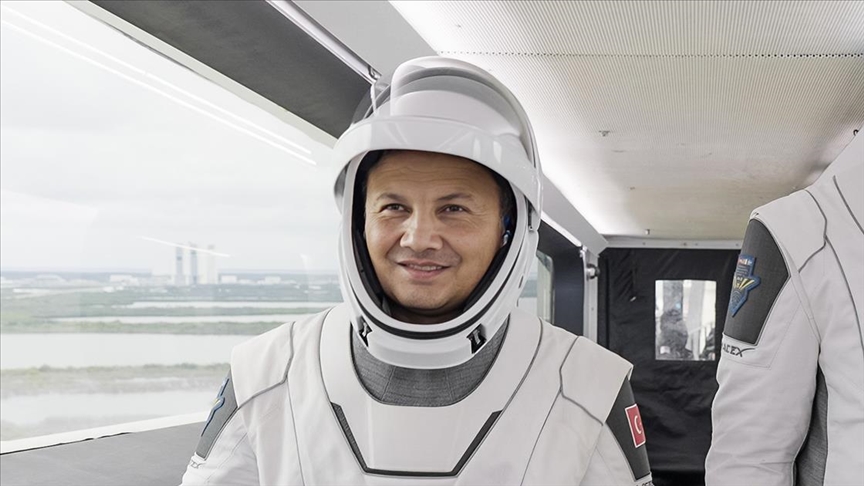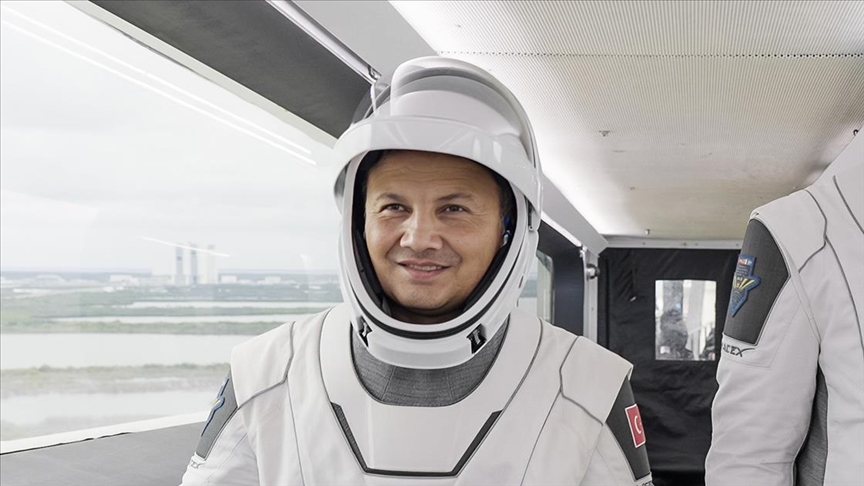Şevval Tufan
In a historic moment for Türkiye, the nation’s first astronaut, Alper Gezeravcı, embarked on a space voyage along with three other crew members as part of the Axiom-3 mission to the International Space Station (ISS). The crew, which includes a Swede and an Italian, both with military pilot backgrounds, was launched from NASA’s Kennedy Space Center aboard a SpaceX Crew Dragon capsule fixed to a Falcon 9 rocket. The liftoff, described by President Recep Tayyip Erdoğan as a “historic” event, took place about an hour before sunset, marking the beginning of a planned 36-hour flight to the orbiting laboratory.

Source: Anadolu Agency
Alper Gezeravcı, a former fighter pilot and captain for Turkish Airlines, is Türkiye’s first representative in space. He is accompanied by Marcus Wandt from Sweden, a former fighter and test pilot, and Italian Air Force Col. Walter Villadei, who experienced the edge of space with Virgin Galactic last summer. The crew is joined by a retired NASA astronaut, Michael Lopez-Alegria, now working for Texas startup Axiom Space, which organized this private flight.
President Erdoğan emphasized the significance of the mission, stating that it marks the start of Türkiye’s second century and is part of the country’s National Space Program. The crew is expected to spend two weeks on the ISS, engaging in over 30 scientific experiments focused on human health, disease, and microgravity effects. The mission symbolizes Türkiye’s entry into the exclusive group of ISS-guest countries and reflects the global trend of nations exploring Earth’s orbit for prestige and scientific advancements.
The Axiom-3 mission, which charges at least $55 million per astronaut seat, is the third journey organized by Axiom Space in collaboration with NASA and SpaceX over the past two years. The successful launch is a crucial step for Axiom Space, an eight-year-old venture planning to build a commercial space station to replace the ISS, expected to retire around 2030. The mission not only holds historic significance for Türkiye but also aligns with the country’s future space exploration goals, including lunar programs, as stated by officials from the Turkish Space Agency and the Scientific and Technological Research Council of Türkiye.




